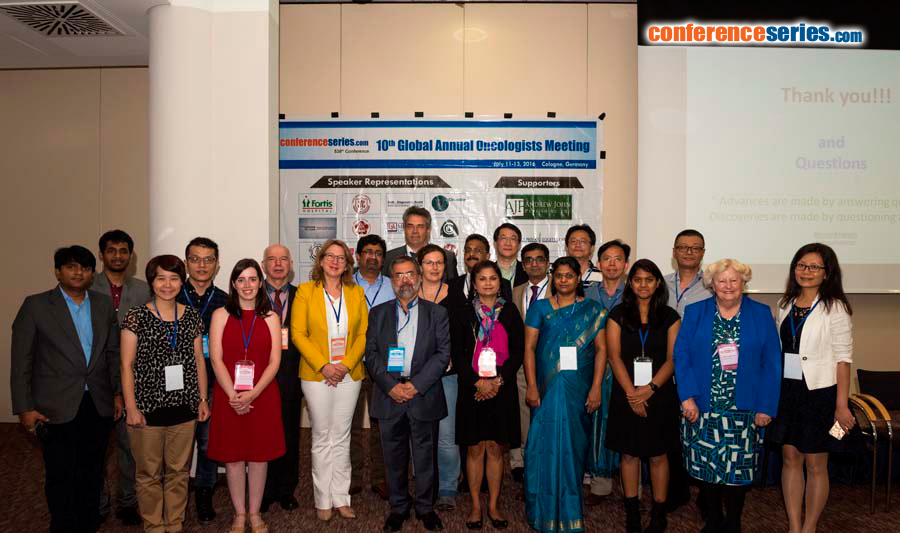
Muhammad U Rashid
Shaukat Khanum Memorial Cancer Hospital and Research Centre, Pakistan
Title: Absence of the FANCM c.5101C>T mutation in BRCA1/2-negative triple-negative breast cancer patients from Pakistan
Biography
Biography: Muhammad U Rashid
Abstract
Breast cancer (BC) susceptibility is connected with the Fanconi anemia (FA) pathway, since biallelic mutations in BRCA2 (FANCD1), PALB2 (FANCN), BRIP1 (FANCJ) and RAD51C (FANCO) have been shown to also cause FA. Recently, a novel mutation c.5101C>T in exon 20 of another FA gene, FANCM was reported among Finnish BRCA1/2-negative BC families with 3.5-fold increased frequency among triple negative BC (TNBC) cases compared with controls. Given that deleterious mutations in other FA genes (BRCA2, RAD51C) have previously been identified among TNBC patients from Pakistan, we investigated whether the FANCM c.5101C>T mutation is associated with TNBC in Pakistan. 117 BRCA1/2-negative TNBC patients and 188 controls were screened for c.5101C>T mutation, using denaturing high-performance liquid chromatography analyses followed by DNA sequencing of variant fragments. The median age of diagnosis was 28 years (range 18 – 67). None of the study subjects carried this mutation implying that c.5101C>T mutation does not or rarely contribute to TNBC in Pakistani population. Two other in silico predicted to be functional missense mutations were identified. A previously reported mutation, c.4931G>A was found in two unrelated early-onset (<30 years) TNBC patients (2/75; 2.7%) of Persian ethnicity but absent among controls suggesting that it may be disease-causative. A novel mutation, c.4936G>C was found in a control of Punjabi ethnicity with a family history of leukaemia. In summary, the FANCM c.5101C>T mutation was not identified in Pakistani TNBC patients. Further whole gene screening studies are warranted to clarify the role of the FANCM gene in TNBC predisposition in Pakistan.


